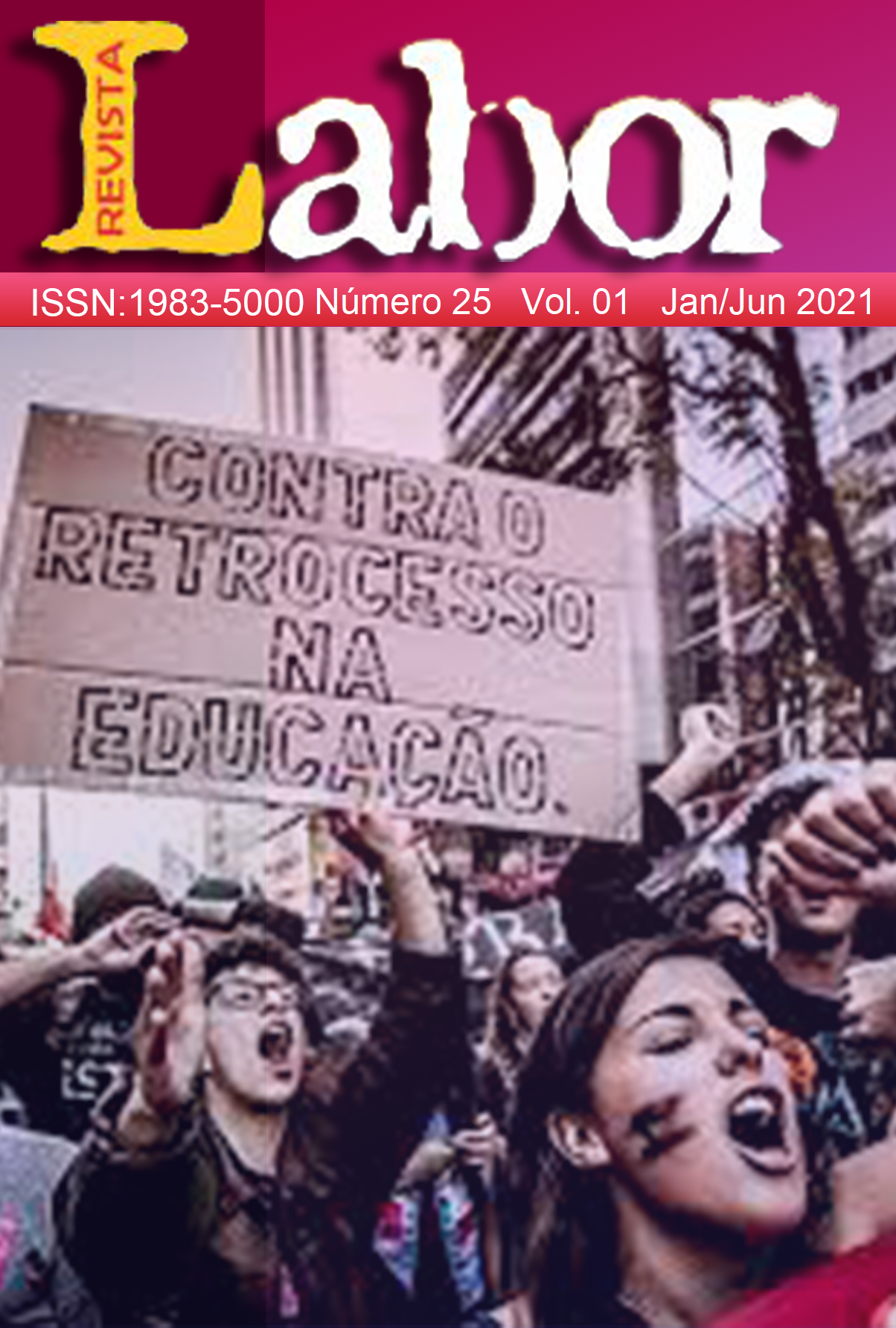Um estudo sobre rotatividade de pessoal a partir das entrevistas de desligamento em uma instituição hospitalar privada
DOI:
https://doi.org/10.29148/labor.v1i25.43267Abstract
The world of work is increasingly demanding and competitive, urging people management strategies that value the talent retention. That is because staff turnover has a negative influence on both workers' and organizational health and can be considered a symptom of malaise in the man-work-organization relationship. Then, knowing the reasons that commonly lead workers to leave an organization is essential to make their control, preventing damage through targeted actions. From this, the proposal of this research is to investigate and analyze the turnover index of a private hospital institution, as well as its causes, using the dismissal interview as a data collection tool. A high turnover rate (40.8%) was found in the institution surveyed. Among the causes mentioned are: devaluation of workers; overload; manager's unpreparedness and lack of leadership; low wages; lack of benefits; presence of workers without a compatible profile with the position; failures in monitoring the integration process; problems related to the work environment and conflicting interpersonal relationships. As a contribution of the study to the organization and its workers, some strategic actions related to a proposal of good practices of people management were presented.
Downloads
Published
How to Cite
Issue
Section
License
Autores que publicam nesta revista concordam com os seguintes termos:
1. Autores mantém os direitos autorais e concedem à revista o direito de primeira publicação, com o trabalho simultaneamente licenciado sob a Licença Creative Commons Attribution que permite o compartilhamento do trabalho com reconhecimento da autoria e publicação inicial nesta revista.
2. Autores têm autorização para assumir contratos adicionais separadamente, para distribuição não-exclusiva da versão do trabalho publicada nesta revista (ex.: publicar em repositório institucional ou como capítulo de livro), com reconhecimento de autoria e publicação inicial nesta revista.
3. Autores têm permissão e são estimulados a publicar e distribuir seu trabalho online (ex.: em repositórios institucionais ou na sua página pessoal) durante o processo editorial informando que o artigo está em processo de publicação, já que isso pode aumentar o impacto e a citação do trabalho publicado (Veja O Efeito do Acesso Livre).


